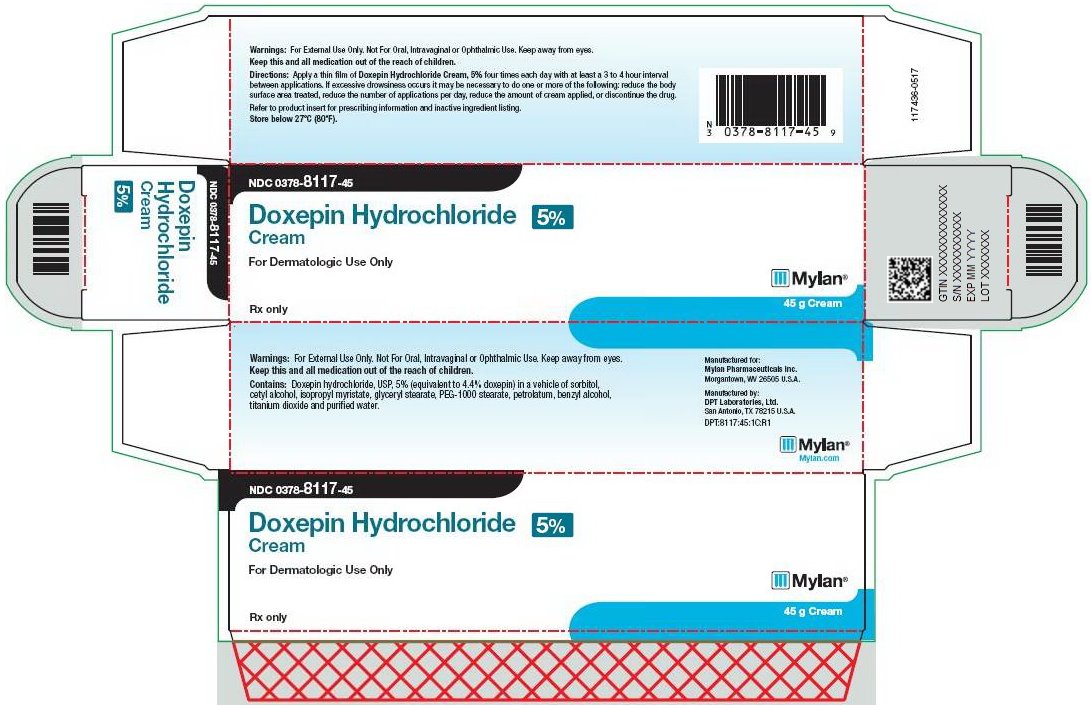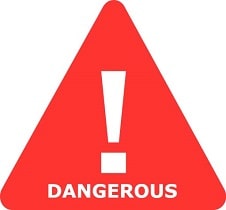Doxepin Hydrochloride Cream while Breastfeeding

What is Doxepin Hydrochloride Cream used for?
I am breastfeeding mother and I am using Doxepin Hydrochloride Cream. Can it have any bad effect on my kid? Shall I search for better alternative?

Nursing Mothers Doxepin is excreted in human milk after oral administration. It is possible that doxepin may also be excreted in human milk following topical application of Doxepin Hydrochloride Cream, 5%. One case has been reported of apnea and drowsiness in a nursing infant whose mother was taking an oral dosage form of doxepin HCl. Because of the potential for serious adverse reactions in nursing infants from doxepin, a decision should be made whether to discontinue nursing or to discontinue the drug, taking into account the importance of the drug to the mother.
Doxepin Hydrochloride Cream Breastfeeding Analsys
Doxepin while Breastfeeding
DangerousSedative effect and respiratory arrest have been described.
Doxepin Hydrochloride Cream Breastfeeding Analsys - 2
Doxepin while Breastfeeding
CAS Number: 1668-19-5
Because of its sedating potential, active metabolite, presence in infant serum, two reports of adverse effects in breastfed infants, and only one report of use without apparent adverse reactions, doxepin is a poor choice and other agents may be preferred, especially while nursing a newborn or preterm infant. If doxepin is required by the mother of an older infant, it may not a reason to discontinue breastfeeding, but the infant should be monitored carefully for excessive sedation, and adequate weight gain. Maternal use of topical doxepin cream is unlikely to pose a problem for a breastfed infant as long as it is applied away from the breasts so that the infant cannot ingest the drug directly.
I already used Doxepin Hydrochloride Cream and meanwhile I breastfed my baby should I be concerned?
You should immediately inform your health care provider about Doxepin Hydrochloride Cream usage and your breastfeeding interval after usage of
I am nursing mother and my doctor has suggested me to use Doxepin Hydrochloride Cream, is it safe?
Please double check with your doctor if he is aware of your breastfeeding stratus, Ask your doctor if there is any safe alternative of Doxepin Hydrochloride Cream. Check with your doctor if you shall temporally stop breastfeeding. You may go for second opinion as well. Still after all of this if your doctor still recommends Doxepin Hydrochloride Cream then go for it as they have access on more detailed medical and scientific information and they understand your individual medical situation much better.
If I am using Doxepin Hydrochloride Cream, will my baby need extra monitoring?
Extreme level of monitoring required as Doxepin Hydrochloride Cream could be dangerous for kid.
Who can I talk to if I have questions about usage of Doxepin Hydrochloride Cream in breastfeeding?
US
National Womens Health and Breastfeeding Helpline: 800-994-9662 (TDD 888-220-5446) 9 a.m. and 6 p.m. ET, Monday through Friday
UK
National Breastfeeding Helpline: 0300-100-0212 9.30am to 9.30pm, daily
Association of Breastfeeding Mothers: 0300-330-5453
La Leche League: 0345-120-2918
The Breastfeeding Network supporter line in Bengali and Sylheti: 0300-456-2421
National Childbirth Trust (NCT): 0300-330-0700
Australia
National Breastfeeding Helpline: 1800-686-268 24 hours a day, 7 days a week
Canada
Telehealth Ontario for breastfeeding: 1-866-797-0000 24 hours a day, 7 days a week
